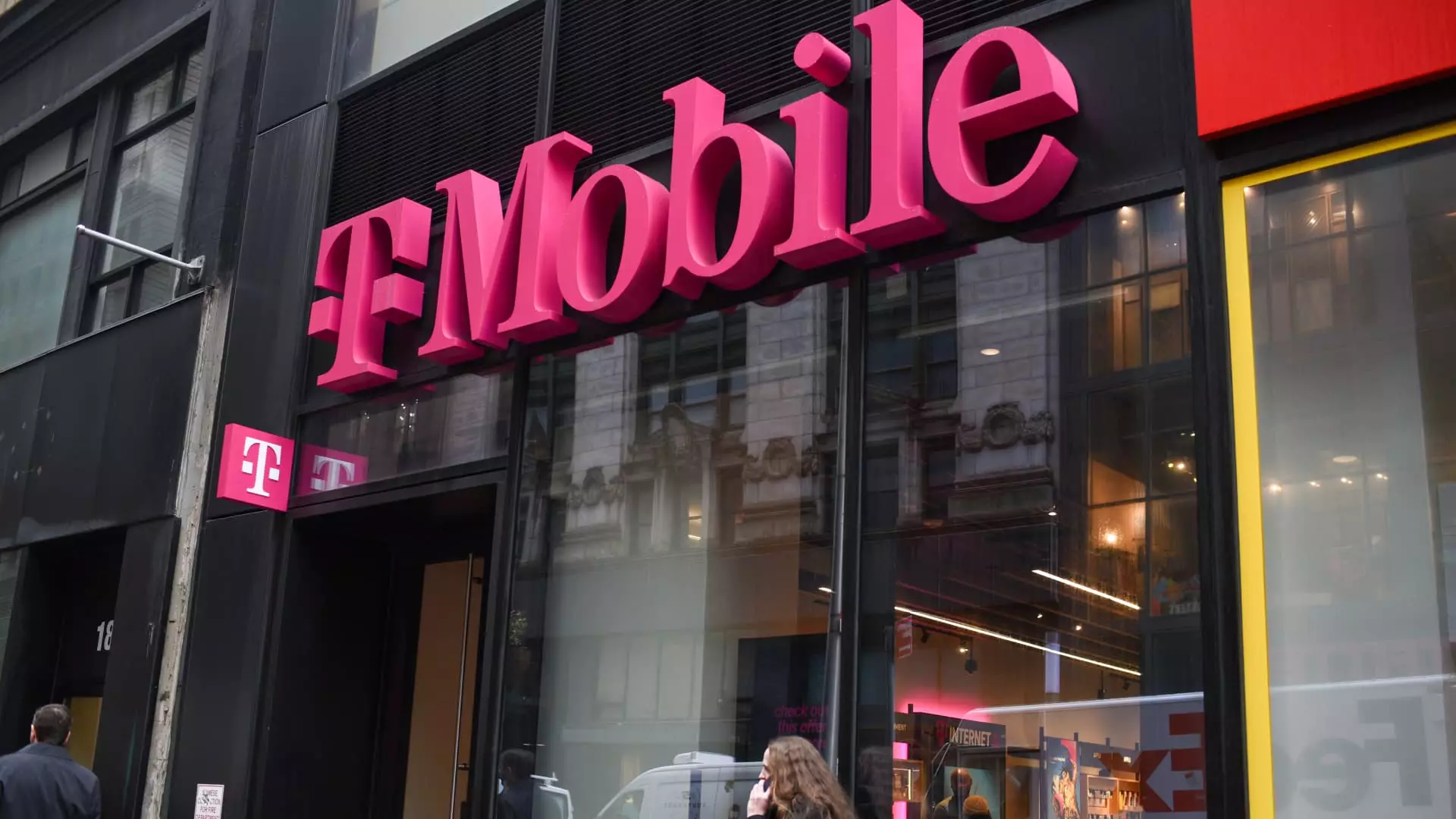T-Mobile finds itself at a precarious crossroads after a disappointing earnings report, with shares plummeting 11%. The company’s addition of 495,000 postpaid subscribers in the first quarter fell short of analysts’ expectations of 504,000. This is an alarming signal for T-Mobile, especially as investors begin questioning the reliability of the company’s growth narrative. As a center-right liberal, I find the reluctance of companies to address their performance with transparency deeply troubling; the shortfall speaks volumes about market saturation challenges and the competitive landscape that companies like T-Mobile face. While true that not every quarter can be a record-breaker, the failure to meet estimates suggests deeper issues that could spiral if not addressed promptly.
Alphabet’s Resilience Amidst Market Chaos
In stark contrast, Alphabet delivered a powerful performance, with shares rising about 2% following robust earnings figures. Reporting earnings per share of $2.81 against expectations of $2.01, this tech behemoth exemplifies how adaptability and innovation can create opportunities even in a tumultuous economic environment. The ability of Alphabet to not only meet but exceed market forecasts indicates a strong underlying business model. Their resilience offers a refreshing perspective on how larger firms can navigate through economic uncertainty, an approach that smaller firms, including T-Mobile, should keenly observe. In an age where digital dependence is surging, Alphabet’s performance reinforces the notion that strategic investments in technology can mindfully shelter a company from broader economic storms.
Skechers and the Cautionary Tale of Macroeconomic Turmoil
Meanwhile, Skechers’ stock took a hit, descending 4.8% in the wake of weaker-than-expected revenue and the withdrawal of its 2025 guidance, blamed on “macroeconomic uncertainty stemming from global trade policies.” While it’s commendable that Skechers pulled the plug on unrealistic expectations, this self-awareness rings hollow against the backdrop of its high-flying competitors. Brands that lack agility in reassessing their market strategies may find themselves trapped, struggling against external forces. Compounded by the shifting tides of global trade policies, Skechers’ caution serves as a warning flag for investors, suggesting a need to be proactive rather than reactive.
The Troubles of Gilead Sciences
Gilead Sciences mirrors these sentiments as it reported a revenue decline of 2.5% compared to analyst expectations. A missed revenue projection, coupled with a relatively small upward adjustments in earnings per share, raises eyebrows concerning the biopharmaceutical firm’s strategic direction. As the healthcare sector becomes more competitive, weaknesses in revenue could signal a coming crisis if proactive measures are not adopted. While one might argue that earnings per share growth can redeem a company, the crux of investor confidence lies in sustainable revenue streams—a lesson Gilead would do well to heed.
Saia’s Stunning 31% Plunge
However, there lies an even graver lesson in the case of Saia, as its stock plummeted a staggering 31% after the company reported dismal first-quarter results. The shipping company not only missed targets, but its forecasts reverberated with a slowing trend in revenue growth. Such upheavals showcase a more significant concern: the precarious nature of the logistics sector amidst changing consumer demands and economic pressures. Investors often underestimate the consequences of economic downtimes; firms like Saia risk being undervalued by the marketplace, a situation that should elicit skepticism moving forward.
Intel’s Struggles in a Chip Crunch
Intel, a cornerstone of tech innovation, unfortunately joined the ranks of disappointment following a 7% drop in shares due to missed earnings forecasts. The projection of $11.8 billion in revenue, far below analyst expectations, raises fundamental questions regarding the company’s future in an increasingly saturated semiconductor landscape. The notion of cutting operational and capital expenses while forecasting break-even earnings delineates an unsettling vision for Intel’s longevity and competitiveness. Investors would do well to scrutinize the strategic pivots that a once-mighty titan of the industry might need to undertake to reclaim its former glory.
Onward and Upward: Boston Beer and Tesla Mega-Gains
In an uplifting end to a rocky earnings season, Boston Beer saw a modest rise of over 1% following superior earnings outcomes, while Tesla’s shares surged 10%. The drastically opposing trajectories of these companies highlight the ever-more prevalent divide within the market. Boston Beer acknowledges potential tariff implications, yet the ability to achieve higher-than-expected earnings reflects a keen understanding of market dynamics. Tesla’s resilience—amid broader market sell-offs—reflects the growing consumer enthusiasm for electric vehicles, asserting itself as a beacon of progress and innovation.
In this unpredictable economic climate, investors must remain vigilant, discerning the narratives behind the numbers while adapting to the constant flux of market demands.

